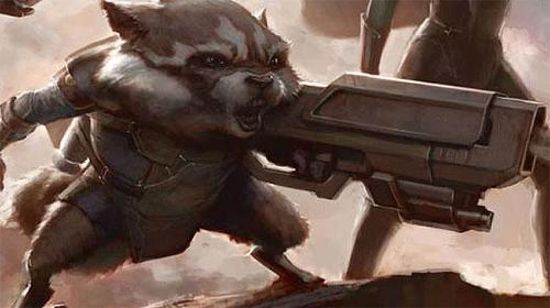
“Less is more” is an axiom, “more is more” is not. “Too much of a good thing can be a bad thing” is an axiom, “too much of a bad thing can be a good thing” is not. “Uneasy lies the head that wears the crown” is an axiom, “crown the lies that wears the head uneasy” is not, because it’s gibberish. Generally gibberish doesn’t make for good axioms. What does are general truths that guide one to success, whatever the personal definition of success may be. For most, success is a fluid concept whose elusive meaning derives from thousands of determinants evaluated on an almost per-second basis. For the fucks who make these goddamn Marvel movies, success is defined solely and always by dollar signs, dat cheddar, the number of zeros on an off-shore bank statement. Marvel has created a veritable industry within the filmmaking industry, the perpetual machine of the superhero blockbuster, and it has enjoyed an unprecedented influx of cheddar by embracing the inverse of axioms. In the Marvel universe, more is always more. Too much of a bad thing really is a good thing. Easy lies the head that wears the crown.
Prior to its release, The Guardians of the Galaxy was painted as a risk for Marvel Studios, a questionable adaptation of a lesser known property whose commercial value was, at least relative to its other releases, suspect. In retrospect, this thinking is insane. Marvel now operates under the same too-big-to-fail moral hazard ethos of Citibank and GM; the scariest unknown it ever faced in regards to Guardians was whether the movie would make back four times its budget or five. The clinical perfection of the superhero blockbuster formula has entirely eliminated risk, that well from which all artistic potential draws. No one involved in the production of a Marvel movie is ever in a place of anything but the utmost security, not the characters, not the world they’re supposed to be saving, and certainly not the producers of the films themselves. The return on a Marvel movie, for its producers and its audience, is as sure and surely bland as a bond’s. They’re neither good nor bad, great nor terrible. They exist forever in the middle ground between good enough and not bad, never to step a toe outside. This is how they sustain themselves in perpetuity. Marvel movies are junk bonds whose meager returns are just enough to keep you buying.

Like every Marvel production since the original Iron Man, Guardians of the Galaxy strip mines its source material’s quintessence, transforming comic book counterculture into mass culture, shrouding its glaring idiosyncrasies for blind consumption. A movie about a band of intergalactic outlaws whose ranks include a magical anthropomorphic tree, Burt Maclin FBI, and a sassy gun-touting raccoon should have been one fucking weird movie. Instead, Guardians is another politely weird-in-your-grandmother’s-definition-of-the-word movie, meant to offend no one. Though, it should be said, it is somewhat difficult to be offended when you’re being visually, aurally, and intellectually bombarded into a vegetative state of total unfeeling. Outside of the movie’s soap operatic cold open, nothing that happens on screen stops, hints at stopping, ever proceeds at any speed slower than light. Occasionally this speed cuts short scenes of true visual mastery, inspired instances of creature creation and set construction. Ultimately though, that Guardians clocks in at around two hours feels like a mercy.
This is due to how the “more is more” philosophy rules Guardians to an extent rivaled only by The porpoise-clap-prompting Avengers. More heroes! More villains! More cheaply nostalgic 80s music! More planets we’re meant to care about and don’t! More explosions! More quips! More Shel Silverstein references! More Maltese Falcon references! More references in keeping with those smart references! More spaceships! More cheap nostalgia! Throw a fucking troll doll in there, fuck it! More battles! More planning for battles! More planning for battles while battling! More quips! More villains wanting to destroy the universe for no reason! More exchanges of dialogue like this: PETER QUILL: “He was the only family I had.” ZOE SALDANA: “No (*bats lashes*) He wasn’t.” And more Groot powers! And more not explaining the parameters of Groot’s powers! And more Groot saying “I am Groot”! More because it never gets old! Him saying, “I am Groot!” More! More! More! More than ever, we are meant to react to these Marvel movies like infants confronted by pinwheels, to stare at all this dumbness in dumb faux-wonder, too distracted to think. Sadly, of this movie, continue to think we do.

Beyond its stilted dialogue, middle school humor, visually incomprehensible climax, convoluted plot, toxic CGI concentrations, farcical stakes, cliche villains, indistinct world, and Zoe Saldana’s acting, the greatest fault of The Guardians of the Galaxy is what little effort it devotes to making you care about the Guardians themselves. In a galaxy of infinite complexity, characters are infinitely simple. We are told again and again, again and again, to the threshold of burst eardrums, that The Guardians are FRIENDS. F-R-I-E-N-D-S. But we aren’t really shown that in action, ever. There’s too much fake shit happening around the five principle characters for anything real to happen among them. Ideally, Guardians would occupy the same earnest tonal space as the original Star Wars trilogy, recreating the chemistry that existed among Luke, Han, Leia, R2 and C3PO, yet the speed of the movie doesn’t allow for any chemistry to develop. Clever banter between five characters can’t build a world; a silent character watching the binary sunset of Tatooine can. Thankfully, The Guardians of the Galaxy have five more movies to realize this. For now, The Marvel is just too strong with this one.
Strawberry Verdict: 2.5 Strawberries out of 5
